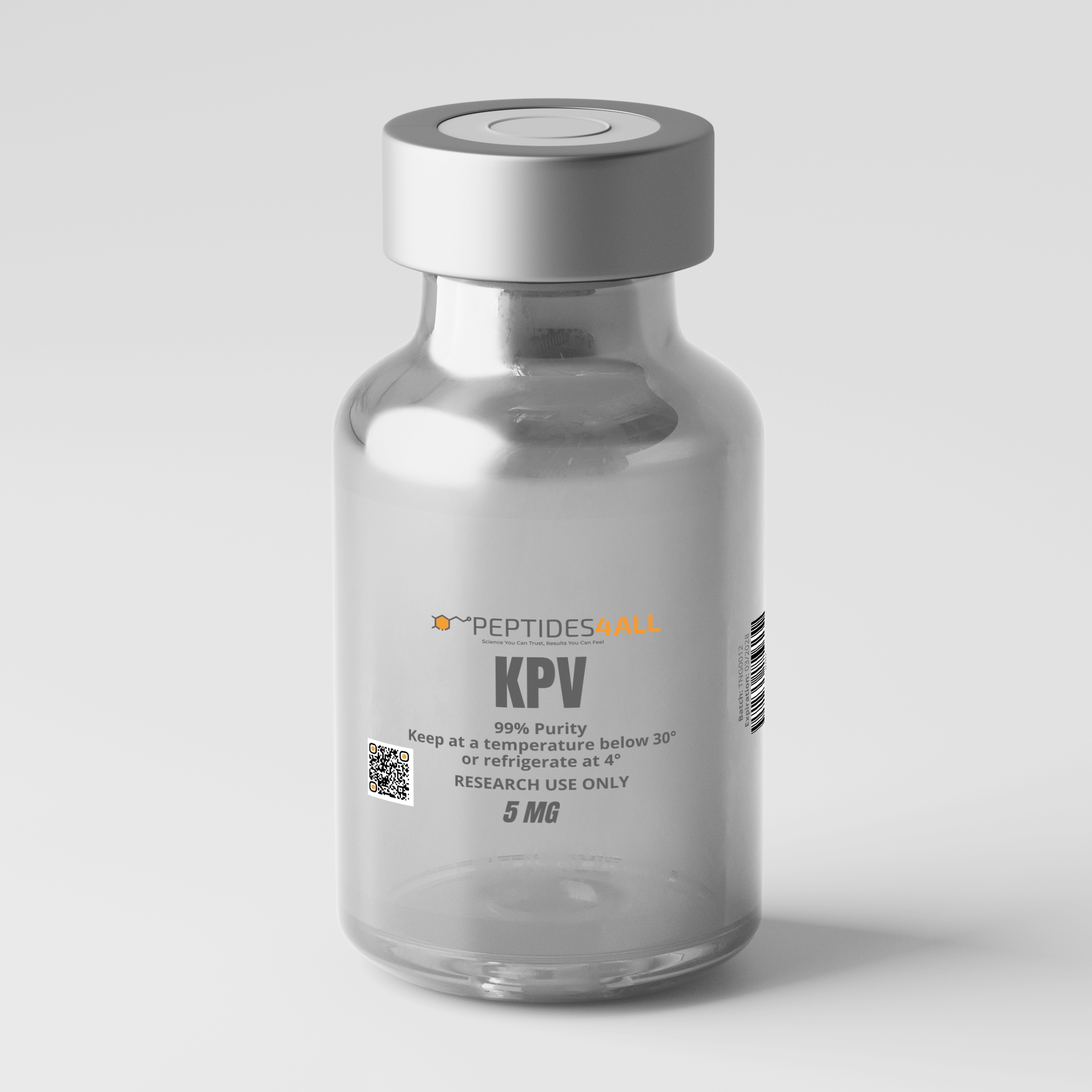Sequence: Lys-Pro-Val (KPV)
Format: C-Terminal alpha-MSH Fragment
Chemical Description
KPV is a naturally occurring tripeptide corresponding to the C-terminal amino acid sequence (11-13) of alpha-Melanocyte Stimulating Hormone (alpha-MSH). Unlike the full-length hormone, KPV lacks melanogenic activity but retains significant capacity to interact with intracellular signaling mechanisms. It is widely studied in cell biology for its specific affinity for the PepT1 oligopeptide transporter, allowing for research into proton-coupled peptide transport and intracellular localization kinetics within epithelial cells.
Research Applications
This compound is strictly for laboratory research use in the study of:
- NF-κB Pathway Modulation: Investigation of the inhibition of Nuclear Factor-kappa B translocation and its downstream effect on cytokine gene expression in vitro.
- PepT1 Transporter Kinetics: Research into the uptake mechanisms of small peptides in intestinal epithelial cell lines (e.g., Caco-2 cells).
- Cellular Signaling: Analysis of cAMP-independent signaling pathways and their role in maintaining cellular homeostasis under stress.
Technical Specifications
- Molecular Formula: C16H30N4O4
- Molecular Weight: 342.43 g/mol
- Purity: >99% (determined by HPLC)
- Appearance: Lyophilized White Powder
Presentation & Handling
- Form: Supplied as lyophilized peptide in sterile vial.
- Reconstitution: Use bacteriostatic water or 2% procaine; swirl gently (do not shake vigorously).
- Storage: Store at –20 °C, protected from light and moisture. After reconstitution, use according to research protocols and handle under sterile conditions.
Disclaimer: For Research Purposes Only
This content is provided strictly for laboratory research purposes and does not constitute an endorsement or recommendation for any non-laboratory application. The information provided regarding specific peptides is for educational and informational purposes only and must not be construed as medical, clinical, or legal guidance, nor as an encouragement for use in humans or animals.
Peptides described here are solely for use in structured scientific study by qualified researchers. We advise consulting with laboratory safety officers or research experts prior to handling these materials. The expectation of responsible, ethical utilization of this information for legitimate investigative and scholarly objectives is paramount. This notice governs all content on this site.
